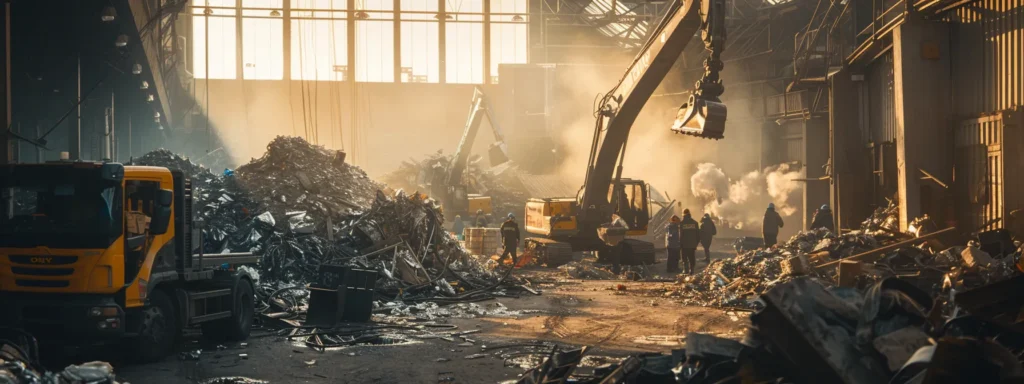In the quest for sustainability, local scrap metal recycling centers emerge as crucial fortresses against the environmental impacts of waste. These centers not only reduce the need for mining new materials but also cut down on energy consumption and greenhouse gas emissions. The positive ripple effect they create extends from local communities to the global stage, underscoring the importance of recycling programs. As we delve into the world of scrap metal recycling, let’s uncover the benefits these centers offer to our planet and our societies. Keep reading to discover how local scrap metal recycling is making a significant difference.
The Role of Scrap Metal Recycling in Resource Conservation and Energy Efficiency
Scrap metal recycling is critical in preserving natural resources. By recycling, we are essentially giving metals a second life, mitigating the need to mine and process raw ore. This conservation of resources not only helps maintain the Earth’s natural balance but also ensures that these finite materials are available for future generations.
When it comes to energy efficiency, the benefits of recycling metal are stark. It’s estimated that recycling iron and steel can save up to 74% of the energy needed to produce them from raw materials. For aluminum, the savings are even more dramatic, with about a 95% energy reduction. By adopting these practices, the recycling industry plays a fundamental role in cutting down global energy demand.
The preservation of resources and energy efficiency fostered by metal recycling is crucial in navigating the world towards sustainability. You can search, “recycling near me” if you are an ecologically conscious individual, driven by the desire to partake in responsible consumption habits.
Boosting the Local Economy Through Scrap Metal Recycling Initiatives

Scrap metal recycling centers provide an unexpected yet substantial economic boost to local communities. The process of collecting, sorting, and repurposing scrap metal generates local jobs, from manual labor to administrative roles. This employment growth encompasses a wide array of skill sets and contributes to community development.
In addition to job creation, recycling initiatives can spawn entire industries devoted to the recovery and transformation of metals. This has the potential to stimulate technological innovation and attract investment, creating a fertile ground for local entrepreneurs and existing businesses to expand within the recycling sector.
The recycling of metals also offers financial incentives for individuals and businesses. By selling scrap metal to recycling centers, entities can turn waste into revenue streams. This secondary market for metal also leads to cost savings for manufacturers who can obtain recycled materials at competitive rates compared to raw minerals.
How Local Scrap Metal Recycling Reduces Landfill Waste

The accumulation of waste in landfills is a mounting concern across the globe. Local scrap metal recycling centers present a robust solution to this issue by diverting substantial amounts of metal away from landfills. Efficient recycling means that materials that would otherwise take up valuable space can instead be reintroduced into the production cycle.
Aside from conserving space, recycling metals reduces landfill-related pollution. Metals in landfills can leach harmful substances into the surrounding environment, but recycling curbs this risk. The practice of metal reclamation not only alleviates the landfill burden but also protects ecosystems from the long-term impacts of waste contamination.
Reducing landfill waste is also essential for managing the long-term costs associated with waste disposal. As the space for landfills becomes scarce and the associated environmental permits more expensive, recycling provides an economically sound alternative to traditional waste management strategies.
Creating Job Opportunities With Local Scrap Metal Recycling Operations

The scrap metal recycling industry is a significant job creator, offering employment to thousands of people at various levels. From the collection and sorting of materials to the processing and selling of recycled products, each step in the recycling chain generates job opportunities for workers with diverse skill sets and educational backgrounds.
These jobs contribute to a more vibrant local economy and help to reduce poverty levels. Communities that host recycling centers experience lower unemployment rates, as the sector often demands a sizable workforce. In addition, these jobs frequently cannot be outsourced, providing stable and long-term employment opportunities.
With the need for specialized handling of different metals, recycling operations also foster the development of expertise in waste management. Over time, this builds a knowledgeable workforce that can innovate and improve the efficiency of the recycling industry further.
Altogether, the integration of local scrap metal recycling centers into our waste management strategies is transformative, with far-reaching benefits for the environment, economy, and society. Overall, as they reduce pollution, create jobs, and conserve valuable resources, recycling facilities represent the embodiment of sustainable development in action.


